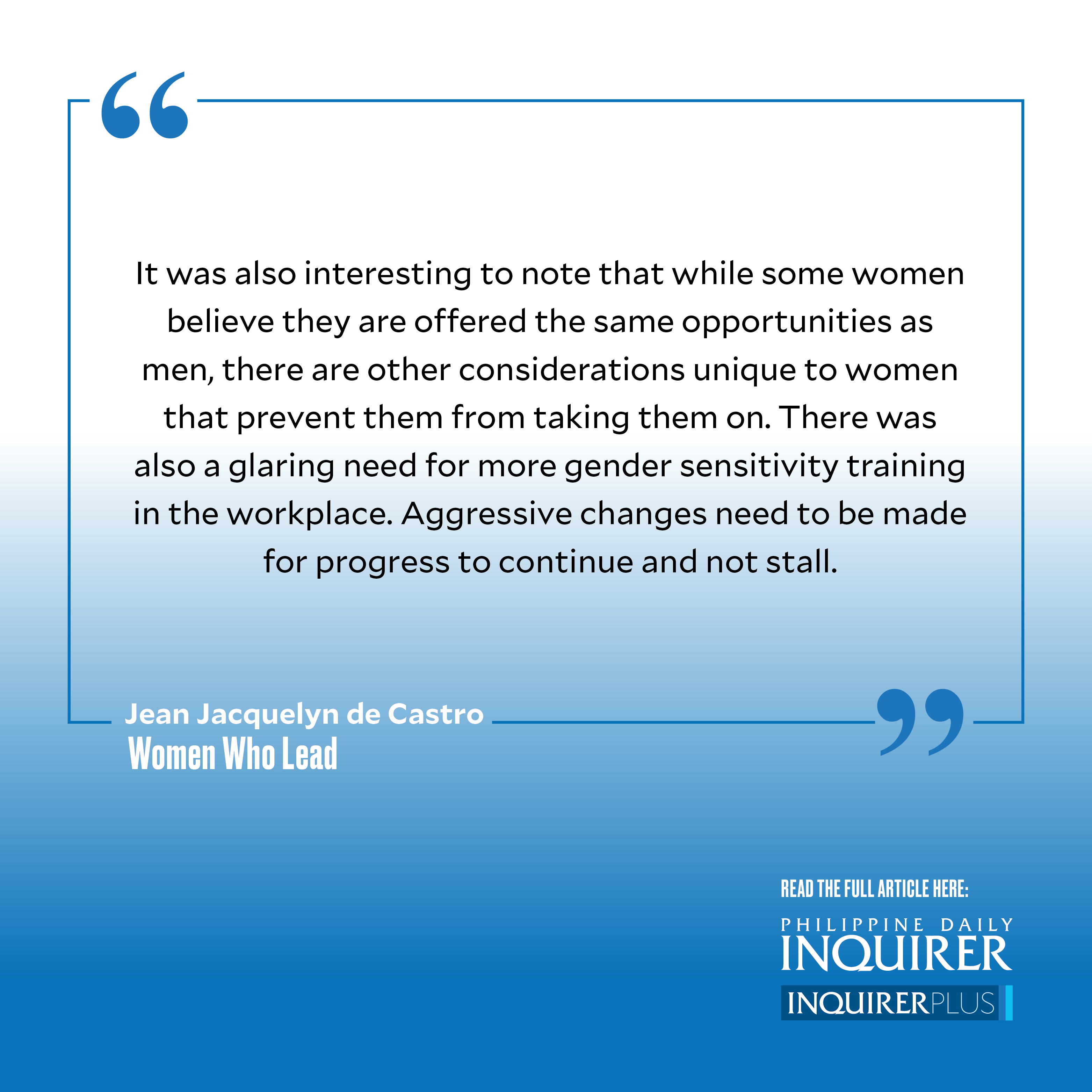
Having more women in the engineering industry is a significantly welcome change with more taking on senior management roles and leading major real estate and infrastructure projects. However, both data and anecdotes show there is still much to be done to advance the needs of women and allow them to fully thrive in this environment.
I mistakenly assumed that technology would be the great equalizer. In his book “The Fourth Industrial Revolution,” Klaus Schwab warned that it can potentially exacerbate gender inequality. Today, even with the advancement of technology and more policies protecting women in the workplace, women still resign from their work for different reasons, including the need to focus on rearing their children and taking care of family. In the Philippines, women in engineering only average 26 percent of the workforce with more specialized engineering fields having even fewer women based on the data from the Professional Regulation Commission. The COVID-19 pandemic dubbed the “inequality virus” only exacerbated the problem for women.
It was encouraging to find out that based on the Department of Education, the number of women enrolled in science, technology, engineering, and mathematics or STEM courses in Grades 11 and 12 is inching toward the right direction from only 38 percent in 2019 to 43 percent in 2021. However, this raises the question: While more women are entering the workforce in engineering, is the industry conducive for women to stay and thrive? Is there a glass ceiling of social and economic pressures that prevent women from progressing in their careers?
To know the barriers that women face in the engineering industry, we conducted the Women in Engineering Baseline Study under the Council of Engineering Consultants of the Philippines Young Professionals Forum with the help of PHI Corp. to understand their work experience, how they perceive their roles, unearth gender dynamics, and evaluate the adequacy of prevailing gender-related policies. From the initial results of the survey, focus group discussion, and key informant interviews, significant improvements in addressing the welfare of women were noted but concerns continue to prevail. It was also interesting to note that while some women believe they are offered the same opportunities as men, there are other considerations unique to women that prevent them from taking them on. There was also a glaring need for more gender sensitivity training in the workplace.
Aggressive changes need to be made for progress to continue and not stall. The study will serve as a good foundation for the Construction Industry Authority of the Philippines to create actionable plans and rules to support the valuable contributions of women as highlighted by executive director in charge Doris Gacho. Together with her and the Philippine Business Coalition for Women Empowerment, different industry leaders committed to making impactful changes came together to form the Women in Engineering Movement with a vision to cultivate an industry for women to thrive in to ensure their active and continuous involvement in decision-making, planning, designing the built environment, and constructing infrastructure.
According to the World Bank, men have dominated the urban planning process so “cities work better for men than they do for women.” As emphasized by Jane Jacobs, “Cities have the capability of providing something for everybody, only because, and only when, they are created by everybody.” Women’s perspective provides for a more holistic approach to important urban issues to make our cities more livable for everyone.
Let the progress that we (and the generations before us) have made not lull us into complacency.
—————-
Jean Jacquelyn de Castro is chief executive officer of ESCA Engineering, a certified BIM manager and construction arbitrator, and a mother of two humans, three canines, and two felines. ESCA Engineering is the first engineering consultancy member company of the Philippine Business Coalition for Women Empowerment, the inaugural project of the Philippine Women’s Economic Network (PhilWEN), in partnership with Investing in Women, an initiative of the Australian government.
—————-
Women Who Lead is an initiative of PhilWEN. PhilWEN is a coalition of women’s business organizations representing women’s participation in various spheres: 1) women in the marketplace (startups, micro, small, medium, and large enterprises); 2) women in the workplace: senior leaders, CEOs, and board directors, across varied industries, and 3) women in communities: marginalized women in urban and rural communities. Learn more about the groups behind our network at philwen.org.